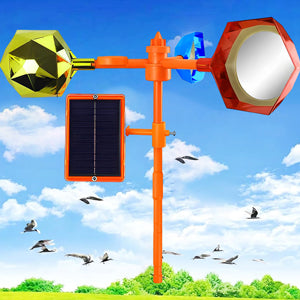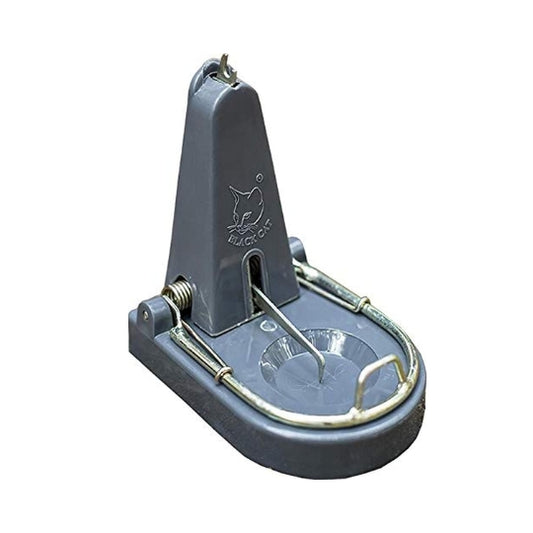Unlocking Prosperity from the Earth: A Guide to Vermicomposting for India's Unemployed Youth
Share
India is a land of paradoxes, where the ancient and modern coexist, and where tradition often meets innovation head-on. In a country teeming with diverse opportunities, the youth of India are always on the lookout for ways to make a difference and secure their future. Amidst the challenges of unemployment and limited job prospects, there lies a hidden treasure beneath our feet – earthworms.
Earthworms, often overlooked in the grand scheme of things, are unsung heroes that can help unleash a wave of prosperity for the common Indian unemployed youth. With over 7,000 species found worldwide, earthworms play a vital role in soil health, crop yield improvement, and even in eco-friendly businesses.
Understanding Earthworms:
Before diving into the world of vermicomposting, it's essential to acquaint yourself with these tiny powerhouses. Earthworms can be classified into two main groups: epigeic and endogeic.
-
Epigeic Earthworms: These worms live on the surface of the soil and feed on decaying organic matter. They are critical for breaking down leaves and other surface litter, contributing to a healthy ecosystem.
-
Endogeic Earthworms: These worms reside within the soil itself, feeding on organic matter that has been incorporated into the soil by the epigeic earthworms. They help improve soil structure by burrowing and mixing soil layers.
Some well-known earthworm species include nightcrawlers, red wigglers, and Lumbricus terrestris. Nightcrawlers are common in North America and feed on decaying organic matter, while red wigglers are often used in vermicomposting due to their efficiency in processing organic waste. Lumbricus terrestris, a European earthworm, is essential for soil health as it thrives underground.
The largest earthworm in the world, Megascolides australis, can be found in Australia and can grow up to an astonishing 12 feet in length. On the other end of the spectrum, the world's smallest earthworms, measuring just 0.04 inches, are found in tropical regions, typically in leaf litter and soil.
The Fascinating World of Earthworms:
Beyond their size and habitat diversity, earthworms are integral to the ecosystem. Their remarkable contributions include:
-
Organic Matter Breakdown: Earthworms are nature's recyclers, breaking down organic matter and converting it into nutrient-rich soil, also known as vermicompost.
-
Soil Structure Improvement: Earthworms help improve soil aeration and drainage by creating tunnels and mixing soil layers, making it easier for plants to establish healthy roots.
-
Biodiversity Support: Earthworms serve as a crucial food source for various animals, including birds, moles, and frogs, thereby playing a vital role in the food chain.
Vermicomposting: A Path to Sustainable Employment:
Vermicomposting, the process of using earthworms to convert organic waste into nutrient-rich compost, presents a golden opportunity for India's unemployed youth. Here's how to get started:
1. Set Up Your Vermicomposting Bin:
- Choose a suitable container with drainage holes.
- Create a moist bedding layer (shredded paper or cardboard) in the container.
- Add food scraps (fruit and vegetable scraps, coffee grounds, tea bags) – avoid meat, dairy, and oily foods.
- Place a ventilated lid on the container.
- Store it in a cool, dark place.
2. Let Earthworms Work Their Magic:
- Earthworms will devour the food scraps, creating compost.
- Beneficial microbes in the bedding material further break down the waste.
- Harvest the nutrient-rich vermicompost every few months.
Why Vermicomposting?
For India's unemployed youth, vermicomposting offers a plethora of benefits:
-
Low Entry Barrier: Starting a vermicomposting venture doesn't require substantial initial capital. Earthworms are affordable and readily available.
-
Eco-Friendly Business: Vermicomposting is environmentally friendly, reducing landfill waste and promoting sustainable agriculture.
-
Improved Soil Quality: Vermicompost enhances soil fertility and structure, making it a valuable resource for farmers and gardeners.
-
Crop Yield Enhancement: Studies have shown that vermicompost can increase crop yields by up to 20%, providing an attractive selling point.
Tips for Success:
For those considering a career in vermicomposting, here are some essential tips:
-
Start Small: Begin on a manageable scale and expand as you gain experience and clientele.
-
Focus on Quality: Ensure high-quality vermicompost, free from pests and diseases.
-
Competitive Pricing: Research market prices to offer competitive rates for your product.
-
Customer Service: Provide excellent customer service and maintain open communication with clients.
Potential Challenges:
While vermicomposting is a promising venture, it's important to be aware of potential pitfalls:
-
Lack of Knowledge: Acquire a solid understanding of vermicomposting to avoid common mistakes.
-
Poor Management: Effective business management is crucial for success. Develop a business plan and set realistic goals.
-
Funding: Ensure you have enough capital to cover initial expenses and sustain the business until it becomes profitable.
-
Location: Choose a suitable location with proper ventilation to ensure the well-being of your earthworms.
-
Permits and Licenses: Check local regulations to ensure compliance with necessary permits and licenses.
Conclusion:
Vermicomposting is a sustainable and profitable endeavor that can empower India's unemployed youth. By harnessing the power of earthworms, you not only contribute to a healthier environment but also open doors to economic prosperity. Start small, focus on quality, and provide exceptional service – your journey into vermicomposting may just be the path to a brighter future. Remember, with earthworms, the possibilities are as endless as the tunnels they create beneath our feet.










